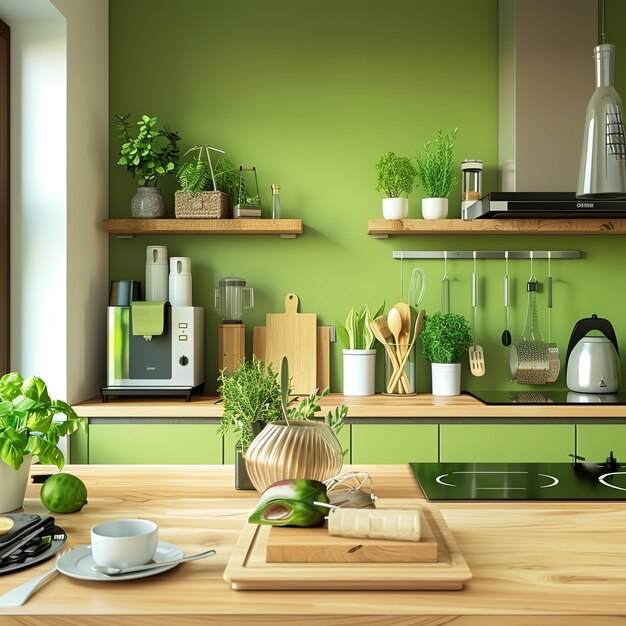In recent years, the kitchen has become a focal point in the movement towards sustainability and eco-conscious living. As more people recognize the importance of reducing their environmental impact, the kitchen—where much of our daily waste is generated—offers a prime opportunity for change. Embracing sustainable and eco-friendly kitchen practices not only benefits the planet but also promotes healthier living and can even save you money in the long run.

Reducing Kitchen Waste: The Zero-Waste Kitchen
One of the most effective ways to make your kitchen more sustainable is by adopting zero-waste practices. A zero-waste kitchen aims to minimize or eliminate waste by rethinking how we shop, cook, and dispose of food. Here’s how you can start:
1. Plan Your Meals to Reduce Food Waste
Planning your meals ahead of time helps you buy only what you need, reducing the likelihood of food going to waste. Create a shopping list based on your meal plan and stick to it, avoiding impulse buys that might end up unused.
2. Store Food Properly
Proper storage of food items is crucial in a zero-waste kitchen. Use airtight containers to keep leftovers fresh for longer, and consider freezing perishables if you can’t use them right away. Investing in reusable silicone bags and beeswax wraps can also reduce reliance on single-use plastics.
3. Compost Food Scraps
Instead of tossing food scraps in the trash, compost them. Composting organic waste reduces the amount of waste that ends up in landfills and creates nutrient-rich soil that you can use in your garden.
Eco-Friendly Cookware: Choosing Sustainable Materials
The cookware and utensils we use in our kitchens play a significant role in our sustainability efforts. Opting for eco-friendly cookware made from sustainable materials not only reduces your carbon footprint but also ensures a healthier cooking environment.
1. Opt for Stainless Steel or Cast Iron
Stainless steel and cast iron are durable, long-lasting materials that don’t leach harmful chemicals into your food. Unlike non-stick cookware, which often contains harmful chemicals like PFOA, these materials are safe for both you and the environment.
2. Choose Bamboo and Wood Utensils
Bamboo and wood are renewable resources that are biodegradable, making them excellent choices for kitchen utensils. They are also gentle on your cookware, reducing the risk of scratches and extending the life of your pots and pans.
3. Invest in Reusable Kitchen Tools
Investing in high-quality, reusable kitchen tools such as cloth napkins, metal straws, and glass containers can significantly cut down on waste. These items are not only better for the environment but also save you money over time as they eliminate the need for single-use products.
Sustainable Cooking Techniques: Eco-Friendly Cooking
Sustainable cooking is about more than just the food you cook; it’s also about how you cook it. By adopting eco-friendly cooking techniques, you can reduce energy consumption and waste in your kitchen.
1. Use Energy-Efficient Appliances
When it’s time to replace old appliances, choose energy-efficient models that have the Energy Star label. These appliances use less energy, helping to reduce your household’s carbon footprint.
2. Cook in Bulk
Cooking in bulk not only saves time but also reduces energy usage. By making large batches of food at once, you can minimize the number of times you use your stove or oven, cutting down on electricity or gas consumption.
3. Utilize Residual Heat
After turning off your oven or stove, take advantage of residual heat to finish cooking your food. This simple practice reduces energy use and ensures you’re getting the most out of the energy you’ve already consumed.
Conclusion: Embrace a Greener Kitchen
Transitioning to a sustainable and eco-friendly kitchen doesn’t have to happen overnight. Start by making small changes, like reducing waste, choosing sustainable cookware, and adopting eco-friendly cooking practices. Over time, these small steps will add up, leading to a significant reduction in your kitchen’s environmental impact.
By incorporating these sustainable practices, you’re not only contributing to a healthier planet but also creating a kitchen that is more efficient, cost-effective, and aligned with your values.
People also read for: